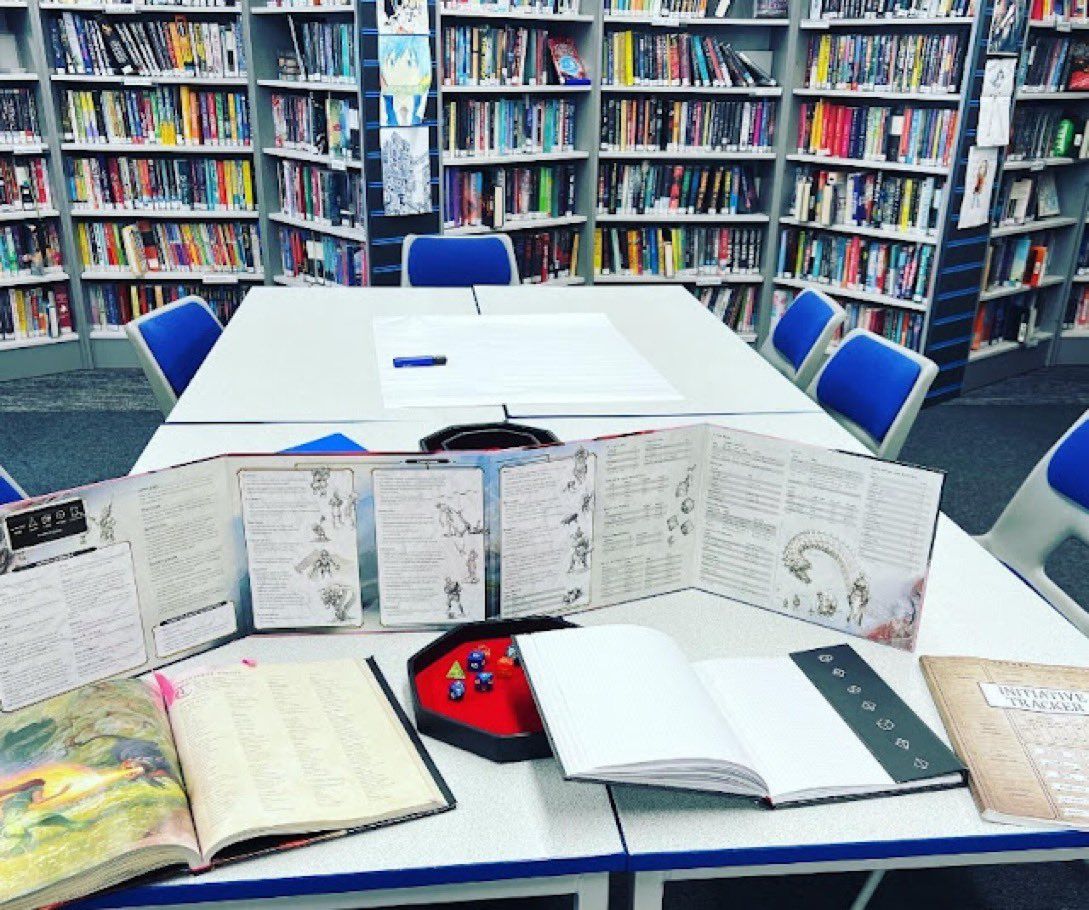Dungeons & Dragons has been around since the early 1970s and, since then, has seen a lot of changes. If you’re new to the game, the concept is very simple: Players create characters (usually in a fantasy setting in the vein of Lord of the Rings, but it can take place anywhere) while one player takes on the role of Dungeon Master (DM). The DM guides the players through an endless world of quests, monsters, intrigue, and companionship. Both players and DMs roll dice to determine their fate. There are limitless places they can go, all in the name of glory, treasure, and fame, or simply to have fun. The majority of it takes place within your own imagination: the DM describes the setting and takes on the roles of Non-Player Characters (NPCs) while the players try to overcome the challenges laid out before them.
To the outside observer, D&D can seem like just another board game, but it truly isn’t. It relies on a very specific set of skills and, as mentioned, is completely limitless. You can be who you want, go where you want, and take on the personality of someone completely different. All of these skills can be translated to the modern-day workplace. Here’s how.
Collaboration and Creativity are Key
Collaboration, or the lack of, is cited as the biggest challenge to workplace environments with the rise of hybrid working. When you think about Dungeons & Dragons, the phrases teamwork and collaboration are persistently brought up as its main component. I currently have a group of amazing authors playing in the campaign Rime of the Frostmaiden. It is set in a frozen world filled with eternal darkness. They must work together to uncover who is behind it and then stop it. Without this group working as a team, they would be dead before the end of the first session.
Working individually or working against each other, D&D adventures end in catastrophe, not only for the players but for the DM as well. This is because a good DM wants their players to work together and succeed; a good DM will cheer on their victories and laugh along with them when they roll terribly and fail in spectacular fashion. A team that has captured a ghost and worked together in creative ways to calm an angry tavern owner down is more than well-prepared to take on a task together in the workplace. They will have a familiarity around them, a sense of camaraderie and friendship, and will know each other’s strengths and weaknesses.
|
|
Mistakes Are Celebrated
In Dungeons & Dragons, as long as you have the right group of people, making mistakes can be the best part of the game. I recently was the DM for two level-one players, a rogue, and a monk. They had infiltrated the basement of a fancy-looking mansion, hoping to steal money from a cruel nobleman. In the basement, they ran into the owner of the house, who also turned out to be not just a mean rich dude but an evil wizard. The wizard cast a spell on the monk, and the monk rolled very poorly — they were transformed into a broom. The wizard then set the broom on fire as an added kick to the guts. This was a catastrophic failure, and the monk fell unconscious. Then, it was the rogue’s turn. She picked up her friend, now a broom on fire, and repeatedly beat the wizard with it, destroying him and saving the day and her friend.
This was a hilarious and exciting moment, one that would not have happened without momentous failure. My point is: D&D gives you the confidence to fail and the confidence to try bold things. It can help those who struggle with making decisions in the workplace.
 |
It Generates Empathy and Selflessness
In Dungeons & Dragons, you are literally putting yourself in the shoes of other people. Even the DM does it. In the basement of the fancy mansion mentioned above, I, as the DM, took on the role of a wizard who was once a respected nobleman who dealt in perfume and spices. His son fell ill and, in an attempt to cure him, accidentally transformed him (using said spices) into a horrible, snarling, cyclops creature called a Nothic. The man decided to take his rage out on the city. I, as DM, had to put myself in the shoes of someone who had suffered a great loss and also someone who would stop at nothing to reverse the change. So, even with someone I disagreed with, I was able to put myself in their shoes and realise that not everything is black and white; sometimes, good people make mistakes and go down paths they didn’t initially intend. In turn, the game allows you to see things from your party’s perspective and put their interests ahead of your own.
Workplaces that bring D&D in as a form of professional development will have a tighter-knit group that works better together and is more creative.










